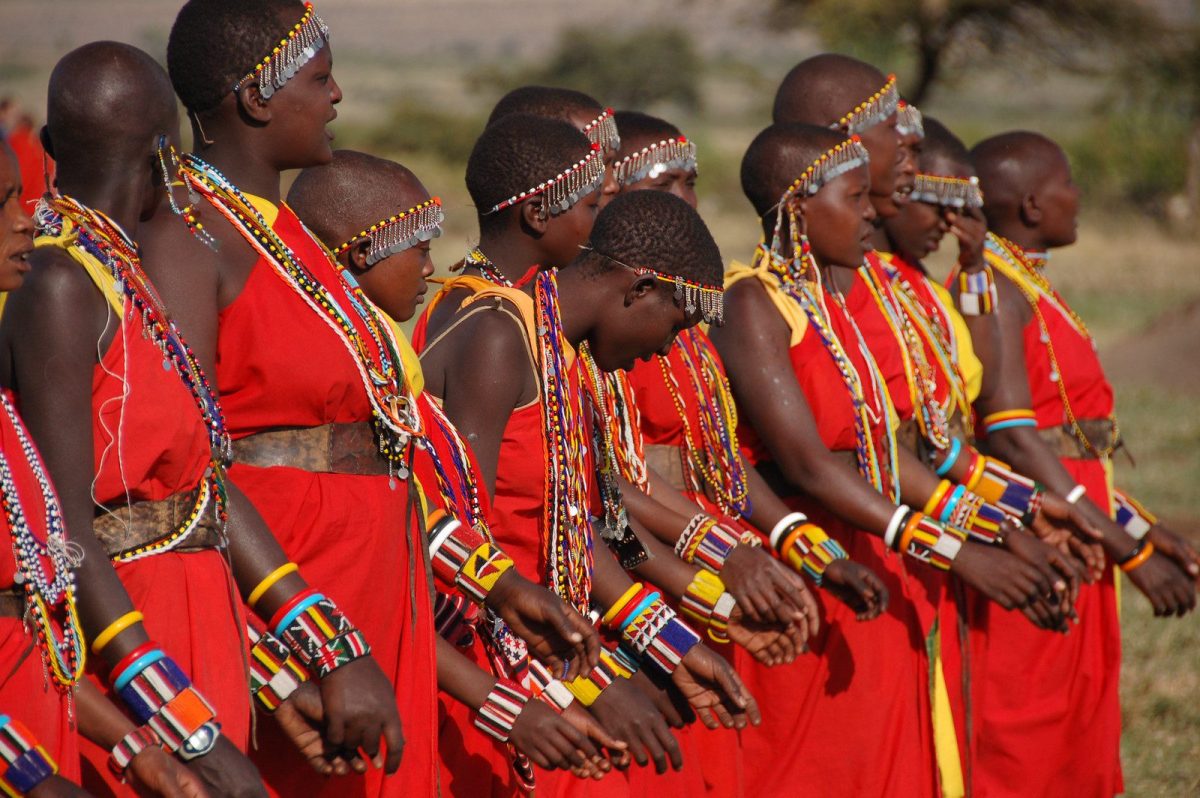5 Ways Global Tourism Must Rethink Its Influence as an Industry

Skift Take
Alongside tourism's biggest bounce-back yet since 2020, sending consumers rushing back to overcrowded destinations, the travel industry continues to dig for ways to avoid a return to business-as-usual — and it is doing so by pushing forward the concepts of sustainability and regeneration.
But rather than espousing nebulous principles that few consumers understand and for which few businesses are offering solutions or acting on beyond words, global tourism must rethink its influential role as a business: avoid a blanket use of “sustainability,” embrace locally-led and locally-designed solutions, define new success metrics, undo the problematic entanglement between tourism and conservation, and do away with the western mindset that plagues the industry.
Those are the recommendations of Dr. Mordecai Ogada on how tourism must "build back better." A Kenyan carnivore ecologist and the co-author of The Big Conservation Lie, Ogada will be presenting at Skift Global Forum in New York City this month.
“Sustainability is being used even in scientific literature like a technical term, and we forget that it is just a subjective adjective; it’s like loveability—are you loveable? That subjectivity creates a problem, especially for tourism,” Ogada told Skift.
Ogada’s initial encounter with the tourism industry's extractive powers took place when he was the manager of the Kenya Wildlife Trust in 2008, a then-non profit governmental organization formed in partnership with luxury safari camping brands. It’s a page-turning story he shares in his book.
Today, Ogada’s work with Survival International focuses on the impact of conservation activities on Indigenous Peoples’ rights in Africa, bringing a boots on the ground, no holds barred perspective at a turning point for the tourism industry coming out of the pandemic. In the next decade, travel and tourism's annual growth rate is projected to reach 5.8 percent — more than double the estimated growth rate for the global economy. But global inequality and social pushback are also at their highest.
Through the example of tourism’s undue influence on Africa's host communities and their livelihoods — from conservation practices to “artistic impressions” a-la-Lion King suited to lure western travelers — Ogada lays out key principles that must guide global tourism’s path forward as an influential industry.
1. Tourism Must Avoid “Sustainability” Unless Locally Defined
Sustainability has long suffered from elitism, but if the industry is to move towards a more positively impacting form of business, it must take into account local solutions as to what sustainability means for a specific host community.
“Someone might think a guy herding his goat is destroying the environment,” said Ogada, “but the same person saying that thinks a tourist flying from New York with a huge carbon footprint to come and sit here and see elephants and drink champagne that’s refrigerated, is sustainable.”
This subjective nature of sustainability is also what drives some of the nonsensical solutions that have emerged, such as carbon offsets, Ogada said, adding that sustainability therefore should be avoided unless expressed by the person in situ.
Tourism must work around what locals determine is their sustainable way of life, and tourists should be prepared to see locals in their traditional environment because ultimately, tourism as a business is not a sustainable endeavor.
“It’s been pushed for so long that tourism is a viable alternative to agriculture or other livelihoods, and then the pandemic hit,” said Ogada. “What we can learn from that is that tourism is like haute couture, it’s fashion that changes every day and it’s very vulnerable to a pandemic or to a financial crash. Tourism is a good livelihood, but it should be additional, not alternative.”
2. New Success Metrics Must Be Prioritized — Now
In 2021, Skift advocated for a new tourism performance metric that goes beyond arrivals and account for the true cost of tourism and the benefits to host communities. The European Union announced its intention to shape new metrics to measure tourism success in early 2022, signaling a turning point for the future of global tourism.
But there’s still no time frame on how soon new measures will emerge beyond heads in beds and arrivals in airports, and whether other regions will be able to adopt a similar approach. In the meantime, the consequences of the relentless pursuit of the foreign visitor continue.
“The most important metric that our government uses is the number of arrivals, as in people who have come from outside,” said Ogada. “If I take my kids down to Mombasa, I don’t appear on any metric.”
That kind of focus places a premium on outsiders and their needs, Ogada added, some of whom have harmful needs, including sport hunting and child sex exploitation.
“The moment you place a premium on a foreigner, you expose yourself to a whole cocktail of potential problems.”
Beyond short-sighted tourist arrivals metrics, the way tourism is practiced is such that success is actually harmful, Ogada said, citing the world famous tourist destination of Masai Mara as an example, which belies untold problems with the density of lodges and the off road driving. “The great wilderbeest migration — everyone wants to get up close and get the best photos, and people are five meters from the animals, it’s terrible.”
The lack of qualitative metrics is what results in environmental damage — and the focus on numbers means no one cares what the tourists did, what damage they caused or what their experience was like.
3. Tourism Must Place People at the Center of the Product
In his book, Ogada tells the story of how he came face to face with the reality of foreign tourism investors’ interest in Kenyan conservation, which was to the detriment of host communities.
Not much has changed since then as far as selling African safari destinations and activities that serve the interest of the foreign visitor and investor, while locals remain on the periphery of the offer.
“There’s a very violent displacement going on right now in northern Tanzania; if Tanzania’s government decided to displace people to build a road or government installation, human rights groups would be up in arms,” said Ogada. “But the silence over the displacement for conservation and tourism is deafening.”
Ogada links the latter phenomenon to tourism’s colonial roots and its growing influence.
“Colonialism celebrated Africa for its beautiful landscapes, its resources, its animals, but the people were always a problem — they had to be removed from the picture,” said Ogada. “There is no African person who voluntarily left his home to make room for a national park; tourists must know that there were people living here.”
Reckoning with tourism’s neocolonial practices is an imperative if the industry is to “rethink” its path. "Rethinking Tourism" is also the theme of United Nations World Tourism Organization (UNWTO) World Tourism Day this year.
“The potential of tourism is enormous and we have a shared responsibility to make sure it is fully realized,” said Zurab Pololikashvili, secretary-general of UNWTO, in a World Tourism Day release, while calling on “everyone, from tourism workers to tourists themselves, as well as small businesses, large corporations and governments to reflect and rethink what we do and how we do it.”
The call to rethink tourism may have remained consistent and loud over the past two years, and a handful of businesses may be evolving in their tourism offers, but the colonial mentality that plagues how the industry operates hasn't changed.
“What we are selling is sort of Tarzan,” said Ogada, referring to tourism in Africa as an example. “We must put people at the center of the product — that is something that needs to be done by tourism agents and the countries themselves.”
4. Tourism’s Harmful Marriage With Conservation Must End
In Kenya, tourism investors have considerable influence over how ecosystems are conserved. This marriage between tourism and conservation has grown harmful over the years as a result.
“Tourism must deliberately distance itself from conservation because it's a business,” said Ogada. “Once tourism has developed its policies then it can collaborate but it shouldn’t be part of setting our standards.”
Conservation science also serves the interest of donors, who are increasingly capitalistic, Ogada added. Thus the travel industry, as a business, needs to be a lot more skeptical of conservation groups and understand what agenda it is helping drive.
This includes the United Nations' 30 by 30 agenda to save biodiversity by conserving 30 percent of the planet's land and sea by 2030, an initiative that is likely to cause untold amounts violence against Indigenous populations living in these areas who will face eviction.
The two industries of tourism and conservation must mature independently, then come to the table to collaborate, but one cannot continue to shape the other’s policies, Ogada said.
5. Tourism Must Demolish the “Tarzan Mindset”
The pandemic debunked a number of myths about global tourism. One of those myths was that tourism saves wildlife, Ogada said, noting there was no increase in poaching anywhere because government-employed rangers were still on the job 24/7, and the situation in the parks became very peaceful, while wildlife thrived.
“A very important message to give any tourist coming to Africa is that you’re welcome, come and see and participate in this, but remove from your mind any idea that you’re saving them,” said Ogada. “This stuff existed before you and it will be there after you.”
As travelers grow more conscious and sophisticated, voting for inclusive brands with their pockets, seeking hyper-localized experiences, and responsive to marketing that represents them, the need to remove the artistic “Lion King” impression of Africa — or of other destinations suffering a similar fate — is an imperative, Ogada said.
It all goes back to demolishing the western mindset that permeates the industry, including those who are in charge of "rethinking tourism" for the future. Travel leaders in the West speak of “giving locals a voice,” in the Global South, for instance. But voices aren’t given, voices are always there but they’ve been suppressed, said Ogada, adding that it’s the suppression that needs to be acknowledged and removed.
“Giving Africans a voice is not about building anything in Africa, it’s about demolishing the wall in the West that keeps those voices out."
It’s a wall Ogada says cuts globally right across numerous fields, from science to business, education or conservation funding. The good news? Global tourism is central to dismantling that western wall and what Ogada calls the “Tarzan mindset.”
“Tourism is where the mentality lives — it travels to all these other fields, but its home is tourism. If the tourism industry pushes back, it will be a very powerful push.”
Skift’s in-depth reporting on climate issues is made possible through the financial support of Intrepid Travel. This backing allows Skift to bring you high-quality journalism on one of the most important topics facing our planet today. Intrepid is not involved in any decisions made by Skift’s editorial team.





